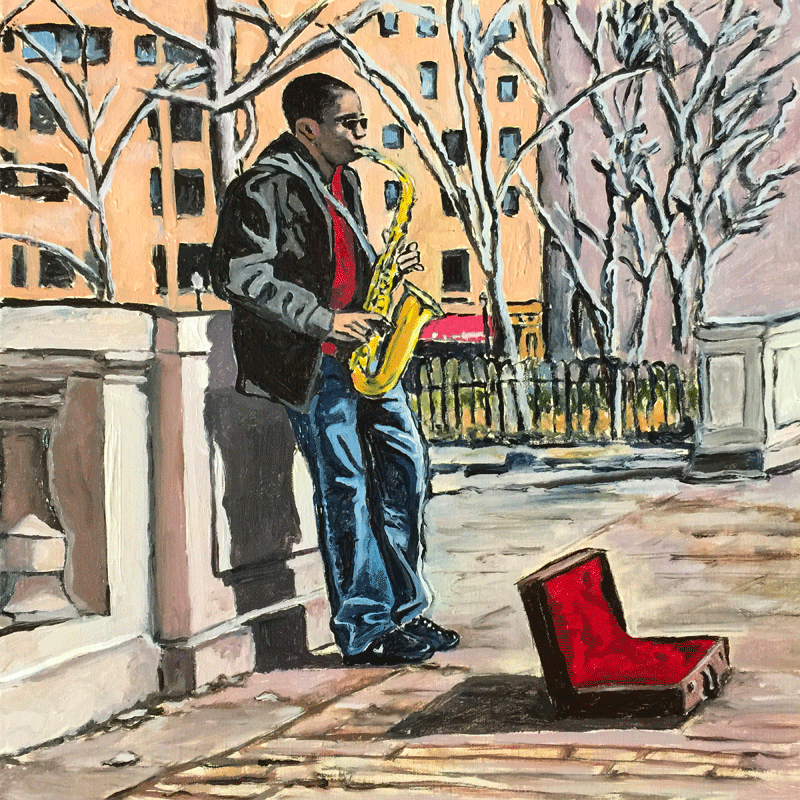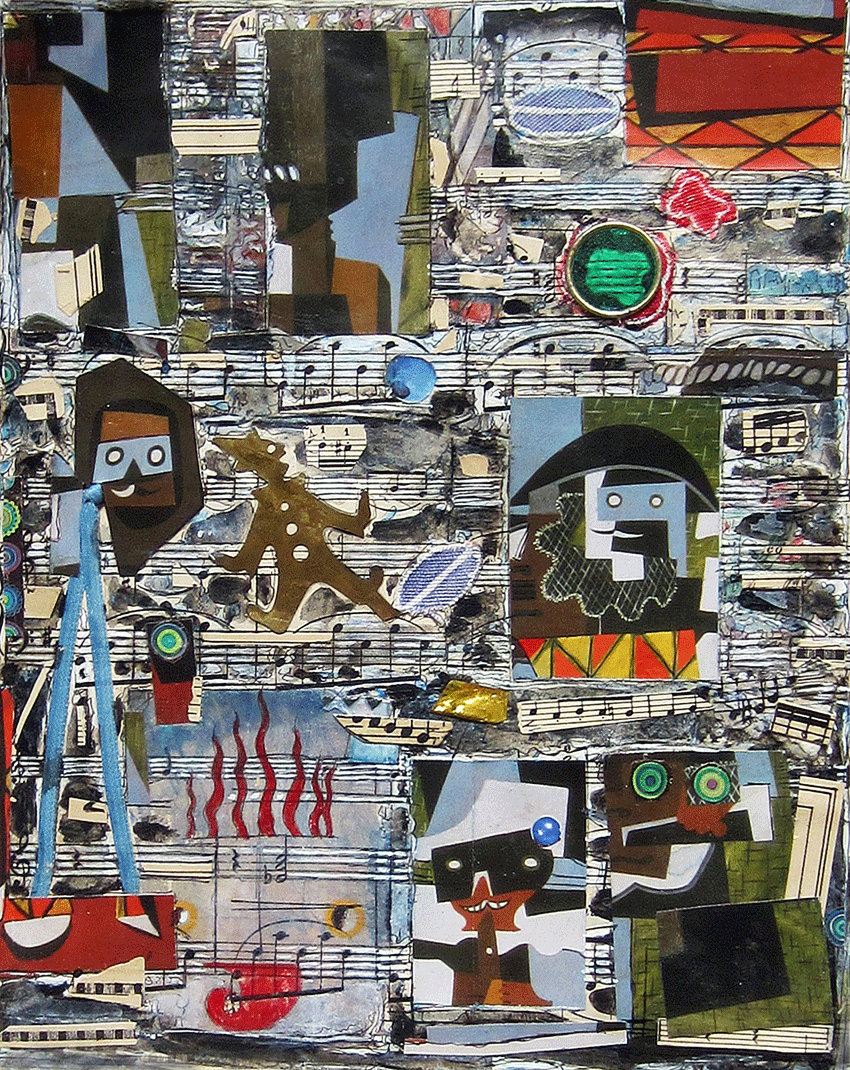
Mariel was late getting to the cafeteria after her talk with Dill. She felt his eyes on her as she stepped into the room. Which made matters worse. Not only was there no place to sit, but Dill was watching her from the doorway to see whether she had anyone to sit with. He was forming his opinion, which he would then bake into a hard thing to share with the other teachers.
She felt like a character in a book, the point-of-view character. As every fifth grader knew, the point-of-view character was the one you were supposed to like, and be like.
So then why was it Mariel was the only one with no place to sit, again?
Carissa, Melissa, Sonja, and Karlyn were at the far end of a bench of sixth graders. If she went over there and tried to squeeze between Carissa and Karlyn, she would be stuck across the table from Tierney, the sixth-grade girl who liked to grab your hand and write something embarrassing on it with sharpie markers. Mariel 🖤 Tory. The last time Tierney did that to Mariel, she’d spent twenty minutes in the bathroom trying to scrub the words off because she had a violin lesson right after school, and what would Mr. D’Alessandro say, if she had sharpie scribble all over her bow hand?
Carissa looked right at Mariel as she stood there with her lunch bag, scanning, but she didn’t wave and point to the tiny scrap of bench between herself and Karlyn. Instead, still watching Mariel, she leaned across to Melissa and said something that made Melissa scream with laughter.
The only other spot left, and time was running short with Dill still standing there in the doorway smiling at her, was at the round table with Heather and Katherine.
Heather and Katherine it would have to be. Mariel made her way to the round table past the awful boys. She put her lunch bag down firmly beside Katherine, as if it were her first choice to sit here anyway. Katherine ignored her, which was fine with Mariel. The two were deep in a discussion about cheat codes in their latest video game. Video games were not allowed at school, but that didn’t faze Katherine and Heather, who were drawing diagrams on a napkin, passing it back and forth, arguing furiously.
The other kid at the table was Donovan, who was only eight, but in sixth grade already. He had a special math tutor because he was learning high school calculus. Like Heather and Katherine, he was obsessed with video games. Unlike them, he was small and cute, and smelled like Suave Green Apple shampoo, another one of his obsessions. As he leaned across the table to correct Katherine’s diagram, Mariel got a whiff of his delicious hair above the general cafeteria odor of peanut butter and Lunchables. Heather studied what he had written through her smudgy glasses, and Katherine used the opportunity to steal one of Heather’s Del Monte Pokémon Fruit Snax. Only Heather and Katherine would eat such nasty things. Not Donovan, He ate very little, and only food that was white.
Mariel looked up and saw that Dill had finally gone off to eat his own lunch in the faculty lounge. He would now report back to the other teachers that she had successfully found a place to sit for lunch. But was he smart enough to know that she was sitting at the losers’ table? And that even the losers were ignoring her?
“How is your violin-playing these days, Mariel?” Donovan had a high voice, like a soprano robot. He had a special therapist who gave him lessons on how to interact with other kids, but Mariel sometimes wondered why the therapist didn’t teach him how kids really talk. Today, though, she was grateful for Donovan’s stiff conversation. It was nice to know what the rules were, and with Donovan you always knew.
“Fine, thank you, Donovan,” she said.
“I would like to play chamber music with you again sometime,” he said.
“That would be nice, Donovan.”
Donovan had the smallest cello Mariel had ever seen. It had an unpleasantly nasal sound, probably because of its size, but he was a competent player, as good as some of the teenage cellists in her youth orchestra. Problem was, his vibrato was too tight. His Bach suites were note-perfect but as boring as the ring tones on a cell phone, and he played everything too fast. Last fall, Mary Ellen, the school music director got the idea that Mariel, Donovan, and Eugene Huang should perform a piano trio because they were the only advanced musicians in the middle school.
The trio was a disaster, of course. They were under-rehearsed because they could only practice during Group, and half the time the piano, or Mary Ellen, or one of the trio members wasn’t free. Eugene didn’t bother to learn his music well enough—he said he had plenty already to practice for his private teacher and his real piano trio, who rehearsed on Saturdays downtown at Rittenhouse Music Prep. And Donovan was incapable of listening to or taking cues from other musicians, or even stopping to rehearse a passage in the middle. He was like a wind-up toy: once he started playing, he went straight through the movement until the bitter end. Worse, Mary Ellen did not seem to recognize that these were problems, and kept a jolly attitude about the hash they were making of the Mozart. Rehearsals, when they happened, were frustrating and exhausting for Mariel, if no one else. It was impossible to reconcile this experience with the rest of her life: the daily hours of scales and etudes prescribed by Mr. D’Alessandro; the feeling that she would never, ever be able to practice enough to catch up with her youth orchestra archrival Halerie, who was eleven like Mariel, but proudly seated in the first violin section next to a high school girl. Or with snooty Annabelle Li, who was homeschooled, and said to be a prodigy, and rumored to practice ten hours a day, and already learning Sibelius Concerto.
During the trio performance at the Thanksgiving assembly, Eugene kept hitting wrong chords and losing his place, forcing Mariel to decide which of the two of them to follow (she chose Donovan; at least he was predictable.) But the A-440 in Donovan’s head did not match the A of the piano, which was a quarter-tone flat, and Mariel had tuned her violin to the piano. She considered matching Donovan’s intonation, but as he played so softly on his tiny instrument and Eugene banged so loudly on the school’s wretched upright Yamaha, that she ended up staying in tune with the piano, more or less, and in time with the cello. It was probably the most horrible performance of the Mozart B flat Major piano trio in the history of humankind. At least they stopped after the Allegro (which, thanks to Donovan, was more of a Presto.)
The audience of parents, kids, and teachers had exploded into applause. Donovan’s mom and dad were in the front row with his sister, cheering. Mariel could see her own mother in the second row, one of the last to stand up, smiling, though not very broadly. She was next to Chi-wei Huang, who looked plainly mortified by her son’s playing. And for good reason, Mariel had thought hotly. At that moment she had never wanted to kill anyone as much as she wanted to kill Eugene Huang—who appeared to be perfectly content with how the performance had gone.
“We stank,” she whispered to him as they walked offstage for their curtain call.
“So what? They don’t know the difference,” said Eugene. “Anyway, they’re not clapping for us, dummy. They’re clapping for Donovan.”
Mariel looked at Donovan, who had followed them offstage with his strange tip-toe walk, carrying his little cello. His face, in the shadows, seemed to project its own ecstatic light. Mariel’s grip tightened on her violin. Eugene was right. She saw it now. The performance was not about the music; it was not about Mozart; it was not about playing well, or even adequately. It was about Donovan playing with other kids.
Somehow Eugene had understood all this, but she had not. She and Chi-wei Huang were the only people in the room upset that the trio had gone badly. It was one of those moments when the world seemed to drop out from under your feet. And just as well, for this was a world that Mariel was not sure she wanted to belong to. She was wretched. The botching of the Mozart disgusted her. At the same time, she was ashamed of herself for being more concerned about the music than about Donovan. This had been Donovan’s moment, so why did she feel so used? Why was she so selfish?
In any case, regardless of her feelings, the results were the same as they would have been if she taken Eugene’s careless attitude and played like a slob. Donovan was happy; his parents were happy about all the progress he was making, socially. Mary Ellen was getting congratulated on her great idea by the head of school. The faculty and parents congratulated themselves on having a school so supportive and inclusive of kids like Donovan. Eugene was happy because playing with Mariel and Donovan had been a pain, and he was glad it was over. Only Mariel was miserable.
“You make yourself miserable,” her mother had once told her, out of supreme vexation. It was during one of their fights about Mariel’s perfectionism, her inability to stop working at something until it was perfect. According to Mariel’s mother, perfectionism was okay it started to get in your own way or drive other people (specifically your mother) crazy.
Perfectionism made her late for school every morning because she could not stop practicing, and when she did, she could not leave until her violin was packed in its case just so. And when it was, she could not leave until her shoes were tied, just so. And her hair, and teeth brushed, just so. The list went on. Why couldn’t she be more like Eugene, who could turn his perfectionism on and off at will? Or like Donovan, whose standards were his own, invented by himself, and who had no one to please but himself?
Look at Katherine and Heather,. They were perfectly happy in their ugly, bad-breath world of Pokémon and Nintendo. Look at Carissa, Melissa, Sonja, and Karlyn. They spent their free time watching MTV and painting their nails. Karlyn practiced her clarinet half an hour a day, and if she squawked through Clair de Lune at her teacher’s house recital, her parents brought her flowers and took her out to dinner.
But Mariel did not really want to be like any of them. She pitied them, their sloppy, undisciplined lives. How much they were missing. What joy they were missing. It was a hard thing to realize that she had more in common with Halerie, and Annabelle Li, and Mr. D’Alessandro than she did with her friends, or even her own mother.
Katherine and Heather had finished eating but had not bothered to clean up their mess, and now were leaning across their own crumbs, still arguing about the cheat codes. Katherine had bits of crushed Frito clinging all over the front of her dark blue sweater. Shuddering, Mariel headed for the trash can. There was Melissa, heading towards her from the other direction. With her blue-beaded headband and her ballerina posture, Melissa moved like the queen of the lunchroom that she was destined to become when they got to eighth grade.
“Why didn’t you sit with us?” said Melissa.
“You didn’t ask me,” said Mariel. “There wasn’t room.”
“You don’t need an engraved invitation,” said Melissa. She dumped her trash and rubbed her hands together. As if that would make them clean. “What did Dill want to talk to you about, anyway?”
Mariel shrugged.
“You sat with the freaks instead,” accused Melissa.
“I was talking to Donovan.”
“Oh, well, he’s a cutie. Speaking of which,” Melissa bent towards Mariel and lowered her voice, “what would you say if somebody asked you if you like Zach D.?”
“Zach D.?” Mariel stared at her, mortified. Zach D. was in seventh grade. He was already growing a mustache. Every sixth-grade girl had a crush on him. Fifth-graders followed his love life closely, but none of them dared declare her affection for someone so old and popular.
Melissa’s eyes were merry with excitement.
“No way,” said Mariel. “He’s like eight feet tall.”
“Well, Tierney told me he likes you.”
Mariel began to walk towards the door, and Melissa followed. It was a trap.
“She’s just making fun of me,” said Mariel. “Everyone knows Tierney likes Zach.”
“No, no,” said Melissa urgently. “That was last month. Didn’t you hear that she and Jason are going out now?”
“No way.”
“Way. He asked her at the skating party. You weren’t there. You had a concert or something.”
“Well, it doesn’t matter. You can tell her I don’t like Zach. He’s too old for me.”
“Are you crazy?” said Melissa. “He looks exactly like Justin Bieber.” Melissa always said that. Mariel didn’t know if she were right or not, because she was unsure exactly which one of the pop stars taped up inside Melissa’s locker was Justin Bieber.
“I’ll tell them you need some time to think about it,” said Melissa wisely.
Mariel opened her mouth to protest, but then the end-of-lunch chimes started, calling them back from the cafeteria to the safety of their classrooms, to social studies and language arts. When the chimes stopped, Melissa was talking again, something about a sleepover party on Friday, renting Saw III, staying up all night. That would never happen, Mariel wanted to tell her. She needed to practice her scales. She had to practice her concerto, and her orchestra part. Music Prep began at 8:30 Saturday morning.
But Melissa was already pulling her along with the crush of kids heading for the doors. Everyone was watching her, Mariel, the point-of-view character. Something was happening that was simultaneously obvious and impossible to comprehend. Everyone wanted to be like her (inexplicably taken under Melissa’s wing!) but that didn’t mean they liked her. She caught Dill’s eye watching her on the other side of the plate glass, and when he saw her looking back at him, he gave her a thumbs-up.
“Creep,” murmured Mariel. But Melissa didn’t hear. She was shrieking with laughter and running after Tierney. Mariel hurried behind them, feeling her own self evaporate, like steam, like nothing at all, into the crowd.
Karen Rile is the author of the novel, Winter Music (Little, Brown) and numerous works of short fiction and nonfiction. Her work has appeared in journals such as The Southern Review, American Writing, Painted Bride Quarterly, Creative Nonfiction, and others. She teaches creative writing (fiction and nonfiction) at the University of Pennsylvania, and is the founding and chief editor of Cleaver Magazine. She has an MFA from Bennington College.

